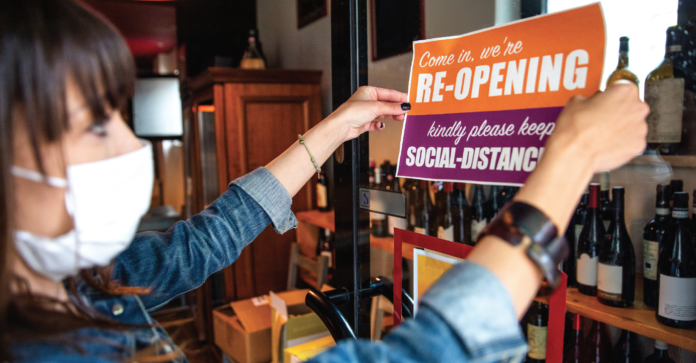Paul Hill looks at what the new lockdown restrictions could mean for the future of the wholesale channel
When the hospitality sector reopened its doors at the start of July it seemed a light was at the end of the Covid-19 tunnel. However, at the time of writing, some of the UK’s biggest cities and towns are under intense lockdown restrictions again.
Many now believe that a full second lockdown could be on the horizon as we head towards the profitable Christmas period. Yet, despite chancellor Rishi Sunak finally announcing specific aid to the channel last month in the form of new discretionary local authority grants in highalert areas, the FWD will be continuing its business rates relief campaign.
Government finally offers specific support to wholesalers
Sunak specifically mentioned the wholesale sector in his announcement, explaining that the funding will be for the “supply chains of those serving the hospitality industry”, alongside the new Job Support Scheme for open businesses and the Job Retention Bonus.
Access to the local authority discretionary fund is the first time throughout the Covid-19 pandemic that wholesalers have been given specific support, and provides relief for struggling foodservice wholesalers, which had previously been overlooked in the government’s support packages.
In answer to a question from Jim Shannon MP about help for businesses delivering to hospitality and the public sector, the chancellor said: “We recognise the complexity of the supply chains, which is why that very generous Job Support Scheme will be available for all businesses in all parts of the country, and I think that will make an enormous difference to the businesses he mentions.”
FWD chief executive James Bielby said: “This is a great win for wholesalers and will provide much-needed breathing space for those of our members whose hospitality customers are closed or barely trading. We’re very pleased that Mr Sunak made particular reference to foodservice wholesalers, as it indicates the government’s evolving understanding of the vital role they play in the economic and social health of the country.
“There is still a severe threat to food distribution to the most vulnerable among us, in care homes, hospices and schools. Lockdowns at short notice leave wholesalers with unpaid bills and stock they can’t sell. While the measures will keep the trucks rolling, the hospitality industry can’t come through these restrictions without further financial support for the sector that supplies it.”
FWD is also calling for wholesalers to receive the same business rates relief that supermarkets and hospitality outlets have had, and says this is the most cost-efficient way for the government to prevent redundancies and business closures in the sector.
Meanwhile, Bestway managing director Dawood Pervez recently called on the industry to work together to ensure fairer distribution following new government measures, hoping that suppliers work with wholesalers and retailers to ensure fair movement of stock to all. “We’re constantly monitoring changes in the economy, and in consumer shopping behaviours,” he said.
With wholesalers having missed a large part of the profitable summer months, losing key sales during the festive period as well could lead to many going out of business without additional aid.






